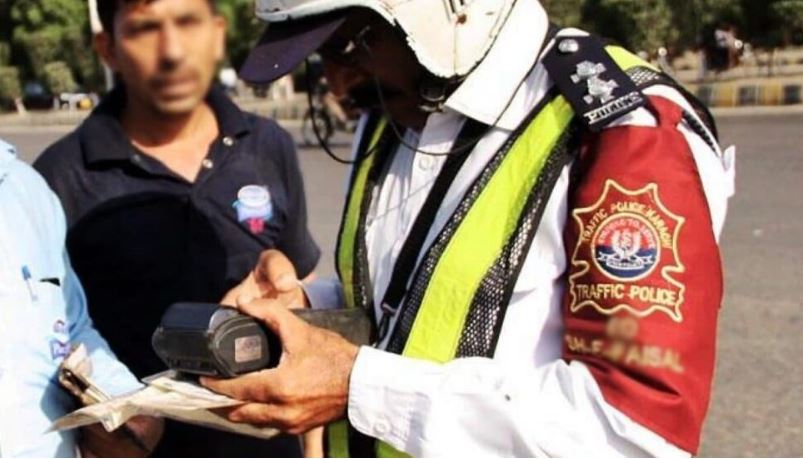In a commendable move towards improving road safety, the Sindh government has made the decision to increase fines for violating 52 traffic laws. The forthcoming Motor Vehicle Amendment Bill, currently under consideration, aims to deter traffic violations and promote responsible behavior on the roads. Media reports suggest that the bill is expected to be approved by the Sindh Assembly in the near future.
The proposed amendments entail significant increases in fines for various traffic offenses. Notably, the fine for riding a motorcycle without a helmet may be raised from Rs. 300 to Rs. 500. For overspeeding, motorcycles could face a fine of Rs. 400, while cars may be subject to a fine of Rs. 1,000, and larger vehicles could face fines of Rs. 1,500.
Furthermore, the bill encompasses specific fines for different types of vehicles and violations. Buses found carrying more passengers than the prescribed limit may face fines ranging from Rs. 600 to Rs. 2,000. Violating a red light could result in a fine of Rs. 500 for motorcycles and Rs. 400 for cars.
Additional proposed fines include Rs. 1,000 for overtaking, Rs. 150 for failing to give way to emergency vehicles, Rs. 1,000 for driving without a license, and Rs. 500 for riding a motorcycle without insurance coverage.
The bill also addresses public transport projects, including the Bus Rapid Transit (BRT) system. Passengers who occupy special seats or place advertising material on the bus platform may face a fine of Rs. 500. Moreover, penalties of Rs. 1,500 may be imposed for chalking or making incorrect entries.
Within the BRT system, specific violations carry their respective fines. Passengers who bring pets or use electric cigarettes may face fines of Rs. 2,500. Placing feet on the seats of BRT buses could result in a fine of Rs. 500.
To become law, the proposal to increase fines for traffic rule violations must receive approval from the Standing Committee. This step highlights the Sindh government’s dedication to enhancing road safety and fostering responsible behavior among road users. By implementing stricter penalties, it is hoped that individuals will be encouraged to abide by traffic laws, ultimately leading to safer roads for all.

